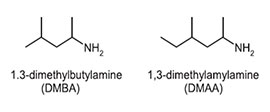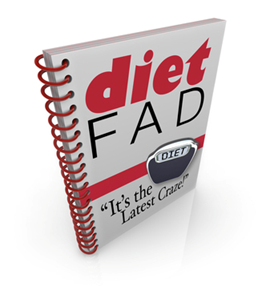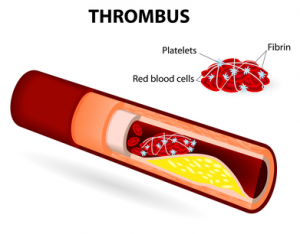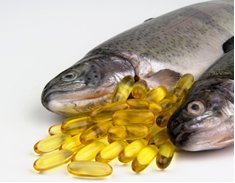What You Don’t Know Could Kill You
Author: Dr. Stephen Chaney
There are a few bad apples in every barrel, and the supplement industry is no different, especially when it comes to sports nutrition, weight loss products and supplements to avoid. In previous health tips from the professor I have exposed some of the more dangerous sports nutrition and  weight loss products on the market at the time. For example, I have reported on the dangers of weight loss and sports nutrition products containing the amphetamine-like compounds DMAA and DEPA .
weight loss products on the market at the time. For example, I have reported on the dangers of weight loss and sports nutrition products containing the amphetamine-like compounds DMAA and DEPA .
The DMAA story was a real scandal. Not only did sports nutrition products containing DMAA kill people, but the FDA actually had to raid the warehouses of a major nutrition retailer to force them to stop selling it.
You might ask why would supplement manufacturers even make products like that? The bottom line is that some companies are far more interested in their profit margin than they are in the safety of their customers. Amphetamine-like ingredients burn off calories and give athletes an artificial energy boost. Those results sell products.
The fact that those same ingedients also kill people is of little concern to unscrupulous manufactures. In fact, as soon as one amphetamine-like ingredient is banned, they just reformulate by adding another amphetamine-like ingredient to their product.
Sports Supplements To Avoid
The unscrupous manufacturers are at it again. A recent paper by a group of scientists in the United States and the Netherlands (Cohen et al., Drug Testing and Analysis, 2014: DOI 10.1002/dta.1735) reported that DMBA, another amphetamine-like ingredient that is a close analog of DMAA, was found in at least 12 products marketed to improve athletic performance, increase weight loss and enhance brain function.
 DMBA (1,3-dimethylbutylamine) is a synthetic compound that has never been tested for safety in humans, something that the FDA is supposed to require for every new dietary ingredient added to a supplement. Because DMBA is chemically similar to DMAA (1,3-dimethylamylamine), the scientists conducting the study suspected that manufacturers may have started adding it to their products.
DMBA (1,3-dimethylbutylamine) is a synthetic compound that has never been tested for safety in humans, something that the FDA is supposed to require for every new dietary ingredient added to a supplement. Because DMBA is chemically similar to DMAA (1,3-dimethylamylamine), the scientists conducting the study suspected that manufacturers may have started adding it to their products.
The scientists surveyed the listed ingredients on all supplements distributed in the United States for any ingredient name that might be a synonym for DMBA. They identified 14 supplements that fit that criteria and analyzed them for the presence of DMBA. 12 tested positive for DMBA.
The supplements they identified that contained DMBA were Contraband, Redline White Heat, Evol, MD2 Meltdown, Oxyphen XR AMP’D, OxyTHERM Pro, Oxyfit Extreme, Synetherm, AMPitropin, Decimate Amplified, AMPilean, and Frenzy – but they warned that there could be many more out there that they didn’t identify.
The authors of the study stressed that DMBA is a synthetic pharmaceutical ingredient, has the potential to cause the same health risks as DMAA, and has never been tested in humans. They stated: “Given the potential risks of untested pharmacologic stimulants, we strongly recommend that manufacturers immediately recall all DMBA in dietary supplements…The FDA and other regulatory bodies should, without delay, warn consumers about the presence of DMBA in [certain] dietary supplements.”
The Council for Responsible Nutrition, an industry group, sent a letter to the FDA on September 12th urging regulatory action…noting that it has a similar chemical structure to the banned ingredient [DMAA] and that none of those selling it have filed required “new dietary ingredient” paperwork with the FDA to substantiate its safety.” The FDA has yet to respond.
This story is all too familiar. The unscrupulous manufacturers won’t remove unsafe ingredients until they are forced to, and the FDA is far too slow to act. Often the FDA doesn’t act until the product actually kills people, as was the case for products containing DMAA.
Label Deception
 If you are like me, you are probably outraged that manufacturers would even consider selling products like these. But the story only gets worse. None of the labels actually list DMBA as an ingredient. That’s probably because DMBA looks enough like DMAA that intelligent consumers might be scared off.
If you are like me, you are probably outraged that manufacturers would even consider selling products like these. But the story only gets worse. None of the labels actually list DMBA as an ingredient. That’s probably because DMBA looks enough like DMAA that intelligent consumers might be scared off.
Instead, they list the ingredient as AMP citrate. They can do that because they are using AMP to stand for 4-amino-2-methylpentane. But that is not the common usage for AMP.
To any biochemist, and probably most high school biology students, AMP stands for 5’-adenosylmonophosphate – a normal and harmless cellular metabolite. Citrate is also a normal cellular metabolite.
In short, the manufacturers are purposely masquerading a synthetic and potentially dangerous stimulant under a pseudonym that looks like naturally occurring cellular metabolites. That is shameful!
Lack of Quality Control
But wait, it gets even worse. The scientists analyzed 14 products that had AMP citrate on the label and the amount of DMBA ranged from 0 to 120 mg. Apparently these manufacturers have no quality control process either. That is a huge concern because this ingredient has never been tested for safety in humans. We have no idea how much it takes to harm people!
The highest, and potentially most dangerous, levels of DMBA were found in:
• AMPilean, a fat burner from Lecheek Nutrition
• Frenzy, a pre-workout powder from Driven Sports
• MD2 Meltdown, a weight loss product from VPX Sports
• AMPitrophin, a brain enhancer sold by Lecheek Nutrition
What Can You Do?
Every time you read something like this, you might be tempted to avoid all sports nutrition and weight loss supplements. However, you should realize that unsafe products like these represent a very small part of the industry. You just need to be an informed consumer so that you are aware of supplements to avoid. For example:
- Be skeptical of flamboyant claims. For example, some of the claims made by the products listed in this article are “The ultimate stimulant experience”, “Fat incinerator”, “Rapid energy surge”. When you see claims like that you should run the other direction.
- Research your manufacturer. Only choose companies with a long track record of integrity and product quality.
- Insist on published clinical studies showing that the product is both safe and effective.
The Bottom Line:
1) A recent report identified a number of sports nutrition and weight loss products containing the amphetamine-like ingredient DMBA. This is a synthetic compound that closely resembles DMAA, a stimulant that was recently banned by the FDA.
2) Because DMBA is potentially dangerous and has never been tested for safety in humans both the authors of this article and the Council for Responsible Nutrition have recommended that the FDA issue a recall of products containing this ingredient. To date the FDA has not acted.
3) You cannot identify products containing this dangerous ingredient by searching for DMBA on the label. That is because the manufacturers selling these products have chosen to use the harmless sounding pseudonym AMP citrate on their ingredient list rather than DMBA.
4) The amount of DMBA in products listing AMP citrate on their label ranged from 0 to 120 mg. That means you have no idea how much DMBA you are getting from the label. Even worse, because this ingredient has never been tested in humans we have no idea how much is safe.
5) Unscrupulous manufacturers who put untested and potentially dangerous ingredients in their supplements represent only a tiny fraction of the industry, but reports like this emphasize the importance of being an informed consumer. I recommend that you:
- Use your common sense. Avoid supplements promising magic gains in energy, muscle mass or weight loss.
- Research your manufacturer. Only choose companies with a long track record of integrity and product quality.
- Insist on published clinical studies showing that the product is both safe and effective.
These statements have not been evaluated by the Food and Drug Administration. This information is not intended to diagnose, treat, cure or prevent any disease.






















